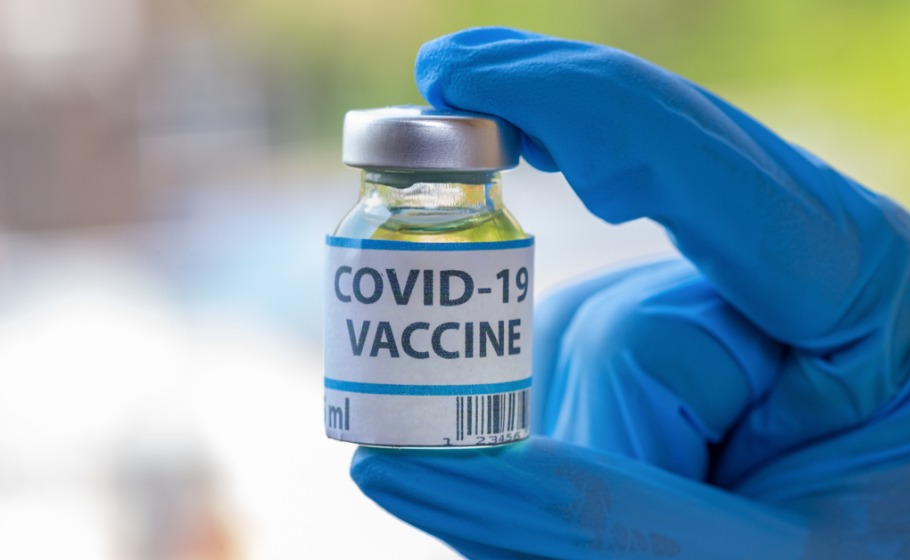
COVID-vaccine's import licence to be cleared in 3 days after approval
Foreign-made vaccines will be able to able to bypass India’s infamous bureaucratic red tape and get import license and registration clearances in just three working days after being given emergency-use approval, said the Union health ministry on Thursday (April 15)

Foreign-made vaccines will be able to able to bypass India’s infamous bureaucratic red tape and obtain import license and registration clearances in just three working days after being given emergency-use approval, said the Union health ministry on Thursday (April 15).
To accelerate the availability of vaccines in India witnessing a severe second surge in the pandemic, the government is pushing to fast-track the use of Covid-19 vaccines that are cleared by regulatory authorities in the US, the UK, the European Union, and Japan. A statement issued by the health ministry and reported by Hindustan Times said that the Central Drugs Standards Control Organisation (CDSCO) will process import license and applications for registration certificate required for an overseas manufacturing site “within three working days from the date the vaccine gets approved for restricted use in emergency situation in the country”.
The applications can be routed through the foreign vaccine maker’s Indian subsidiary or in the absence of an Indian division, it can be filed through an authorised agent in India.
Also read: ‘They laugh at you, then you win’: Rahul hits back at govt over foreign vaccines
Besides these concessions, on April 13 the government announced that it had exempted foreign manufacturers from conducting “local bridging studies” of their vaccines before rolling them out in India for emergency use. But first, they would have to be approved by other global major regulators or the World Health Organisation (WHO). These companies can now do the bridging studies alongside administering their vaccine shots to the public.
There are some guidelines these vaccine manufacturers will however have to follow, which have been laid down by the Drugs Controller General of India (DCGI) under the National Covid-19 Vaccination Programme, said the HT report.
After being mandatorily released by the Central Drugs Laboratory (CDL), Kasauli before it can be used, the foreign vaccine should be initially used only on 100 beneficiaries. After assessing it for 7 days for safety outcomes, the CDSO will then give the nod for bridging local trials and for rolling it out in India for its vaccination programme.
After the data of the bridging trial results are submitted, the controller will review the permission granted for restricted use in an emergency situation.
According to Dr V K Paul, member (health), Niti Aayog, said that by bending the rules the government was in no way compromising the quality of data. The regulatory mechanisms continues to be mandatorily “robust”.
Also read: COVID vaccines in short supply. How to meet the ever-increasing demand?
“India is known to approve quality drugs and vaccines globally, and export in large volumes, and there is no question of diluting that. The regulatory mechanism has been modified to save time in special situations like this pandemic,” Dr Paul explained, adding that only an earlier rule demanding a prior bridging trial has been dropped but it will have to be done parallel to the vaccine’s emergency use in the country.
India currently uses doses of Covishield and Covaxin, while a third, Sputnik V made by Russia’s Gamaleya Institute, was recently approved. These Russian made doses are expected to be imported at first before a group of five Indian companies will start manufacturing the vaccine.
The Indian government has recently invited vaccine makers such as Pfizer, Moderna and J&J into the country. And, any foreign vaccine maker whose vaccines have been approved by agencies such as the US Food and Drug Administration, UK’s Medicines and Healthcare Products Regulatory Agency, European Medicines Agency, Pharmaceuticals, and Medical Devices Agency Japan, or by WHO.
Also read:Clearance bottlenecks block new COVID vaccines that can help ease shortage
Three vaccines Pfizer-BioNTech, Moderna and J&J have all been authorised for use by these international regulators but have not got the green signal as yet in India. Pfizer-BioNTech and Moderna vaccines with a 95 per cent efficacy rate use mRNA technology considered to be a breakthrough platform for coronavirus vaccines.
Another vaccine, made by Novavax is currently engaged in clinical trials and has not yet been approved by these regulators. Novavax has signed up with Serum Institute of India to produce a billion doses and similarly, Hyderabad’s Biological E has a deal to produce 600 million doses of the J&J vaccine and was recently poised to begin bridging studies.
By facilitating faster access to foreign vaccines, India, the world’s largest manufacturer of vaccines wants to encourage imports including that of bulk drug material, optimal utilisation of domestic fill etc, which will, in turn boost the country’s vaccine manufacturing capacity and total vaccine availability.


